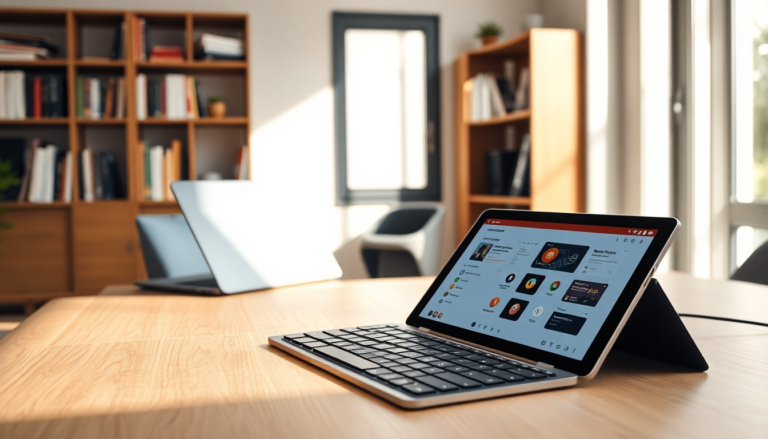Argomenti trattati
In today’s mobile-first world, we’re witnessing a monumental shift in the landscape of operating systems. With smartphones and tablets becoming increasingly powerful, many users are gradually moving away from traditional desktop and laptop computers. This shift opens up a Pandora’s box of questions about the future of operating systems, particularly for Windows, which has long stood as the backbone of personal computing. What does this mean for users and the tech industry at large?
The Current State of Operating Systems
Let’s take a closer look at the numbers: Microsoft’s Windows currently supports over a billion devices around the globe. At first glance, that sounds impressive, right? But here’s the kicker: reports indicate that Windows has lost around 400 million users in just the past three years. That’s a staggering decline for a platform that once reigned supreme in the market. Why is this happening? The answer lies in a growing preference for mobile devices that offer the flexibility and functionality users crave in their daily lives.
As mobile computing continues to carve out its niche, companies like Microsoft are feeling the heat and must adapt their strategies. The push towards Windows 11, especially as Windows 10 approaches its end-of-support date, is a clear indication of this urgency. Microsoft is keen to encourage users to upgrade, hoping to maintain customer loyalty amidst fierce competition from alternative platforms, like those from Apple and Google. But will it be enough?
Rising Competition and Changing User Preferences
The surge of macOS, particularly following the launch of Apple Silicon, is creating significant challenges for Windows. Interestingly, while Apple’s own computer sales have also dipped, the narrative isn’t simply about former Windows users flocking to Apple products. Instead, many consumers are turning to more budget-friendly options like Chromebooks, which have gained traction, especially in educational settings. As students get accustomed to these devices, they might continue to prefer them in their personal lives, which could further chip away at Windows’ market share.
But it’s not just hardware that’s facing competition; software ecosystems are also undergoing a transformation. With the increasing adoption of web-based applications and free alternatives like Google Docs, the necessity for traditional office software is diminishing. This shift in user behavior signifies a move away from reliance on Microsoft’s offerings, as many users find they can meet their needs with cloud-based solutions.
Future Outlook and Implications
Looking ahead, the impending end of support for Windows 10 might trigger a temporary spike in corporate sales as businesses scramble to secure their systems with updated software. However, the consumer market tells a different story. Many users seem perfectly content with their existing machines, even opting to forgo updates. This disconnect highlights a gap between corporate strategies and consumer behavior—what does that tell us about the evolving tech landscape?
As we gaze into the future, it’s clear that the operating system landscape will keep shifting. The allure of mobile devices, combined with the growing viability of alternative operating systems, suggests that traditional platforms may face challenges in maintaining their relevance. For consumers, this translates to more choices and potentially better pricing—but it also raises concerns about long-term support and software availability.
In conclusion, the ongoing transition toward mobile computing is not just a passing trend; it represents a fundamental change in how users engage with technology. As operating systems adapt to this new reality, both consumers and businesses must carefully navigate this evolving terrain, making informed decisions about their tech investments. What steps will you take to stay ahead in this rapidly changing environment?

